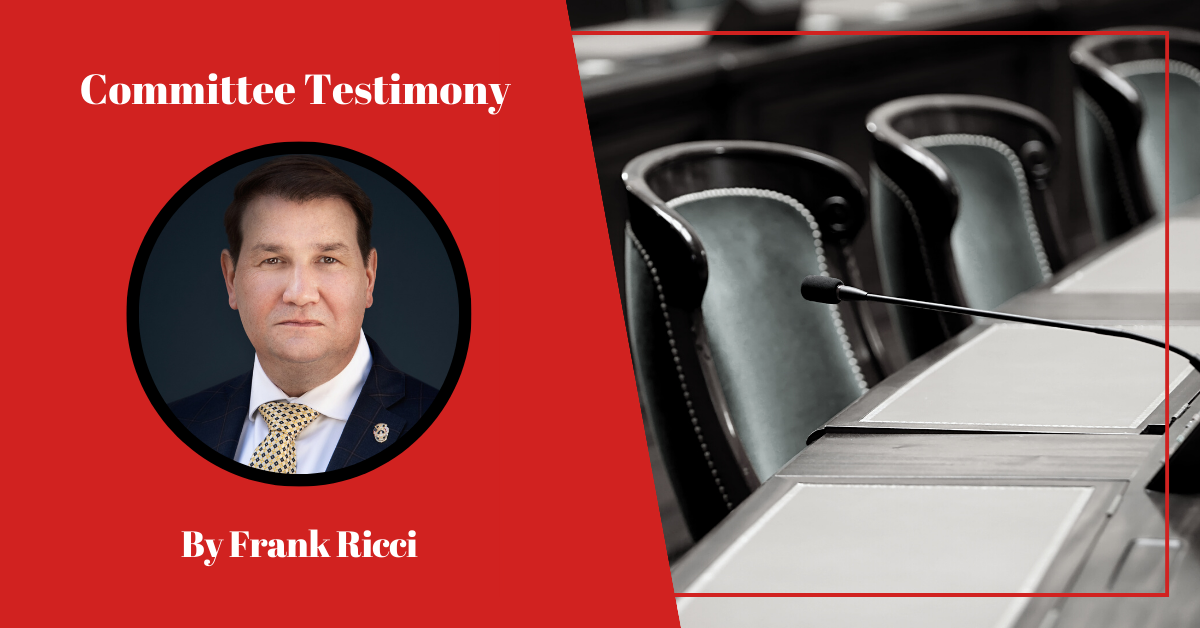Submitted by Frank Ricci, Labor Fellow
March 7th, 2024
My name is Frank Ricci and I serve as Yankee Institute’s Labor Fellow. Yankee Institute, a non-profit public policy organization in Hartford dedicated to empowering Connecticut residents to forge a better future for themselves and their families.
The Unintended Consequences of Connecticut’s “One Fair Wage” Legislation
Connecticut, like many states, is grappling with proposed legislation that aims to address perceived inequities in the payment structure for service industry workers. Raised S.B. No. 221, titled “AN ACT CONCERNING GRATUITIES AS PART OF THE MINIMUM FAIR WAGE,” seeks to eliminate the tip credit system and mandate a “one fair wage.” While the intent may seem noble, a closer examination reveals that this legislation is poised to harm small businesses and the very workers it claims to protect.
To start, it’s crucial to understand that every waiter, waitress, and bartender in Connecticut already earns at least the minimum wage of $15.69 per hour, as mandated by state law. If a waiter or waitress does meet this number due to a slow day or poor service, the business is required to pitch in and get them to the $15.69 an hour wage. This existing system includes a tip credit that allows businesses to count tips toward this minimum wage, which has proven successful in sustaining a viable ecosystem for both employers and employees.
Keith Beaulieu, owner of The Main Pub in Manchester and Chairman of the Connecticut Restaurant Association, highlights the potential repercussions of this legislation. If enacted, the average annual payroll for his establishment would surge by over $140,000. This financial burden, compounded by the already challenging economic landscape for small businesses, threatens to result in job losses and decreased operational capacity.
Furthermore, restaurant profit margins are slim— testimony from the Restaurant Association in 2019 indicated earning based off one dollar is roughly four cents. The likelihood of this new burdensome regulation and cost will be passed on to consumers making CT more unfordable and making it harder for families to go out to eat.
The term “one fair wage” may sound appealing, but in reality, it is anything but fair. Naming legislation to deceive is an affront to good governance, masking the potential harm it may inflict. As George Washington stated, “Truth will ultimately prevail where there are pains taken to bring it to light.” Genuine fairness and transparency should be the guiding principles in crafting legislation, free from misleading labels that obscure the true impact on businesses and workers.
Additionally, claims by advocates that this legislation addresses an issue of fairness akin to “lifting the bottom” are misleading. Connecticut restaurant workers overwhelmingly oppose the proposed changes, recognizing that the increase in labor costs would fall directly on businesses. Scott Dolch, President & CEO of the CT Restaurant Association, emphasizes that servers and bartenders, on average, make $33 and $38 per hour, respectively, well above the current minimum wage. The existing system, backed by survey data from over 446 service industry workers, is supported by 96% of respondents who favor the current tip credit system.
The push for “one fair wage” under the guise of rectifying potential abuses in tip credits neglects the fact that the Department of Labor already enforces wage and hour laws. The proper response to non-compliance issues would be an increase in penalties, not a drastic overhaul of a system that has demonstrated success for both employers and employees.
In the face of rising utility costs, taxes, healthcare expenses, and staffing shortages, the proposed legislation threatens to exacerbate the challenges faced by small businesses in the food and hospitality industry. The notion that this change will create a more stable existence for workers is contradicted by the foreseeable consequences of increased labor costs and potential job losses.
In the realm of unintended consequences, the proposed legislation may inadvertently result in a decline in tipping and a subsequent impact on service quality. As the public becomes aware that service industry workers already earn a base salary exceeding $15 an hour, there’s a risk of reduced gratuities, leading to a scenario where workers, striving to provide excellent service, find themselves making less money under the new legislative scheme. In this paradox, the very attempt to address wage concerns is likely to create a situation where both the quality of service diminishes and the take home pay of workers decreases, making everyone worse off than they were prior to implementation.
It is crucial for policymakers to carefully consider the multifaceted consequences of legislative changes, ensuring that the pursuit of fairness doesn’t inadvertently jeopardize the delicate balance that sustains both workers and businesses in the service industry.
In conclusion, Raised S.B. No. 221, while well-intentioned, poses a significant threat to the delicate balance that sustains Connecticut’s small businesses and service industry workers. As the saying goes, “If it isn’t broke, don’t fix it.” The current system, backed by empirical data and the overwhelming sentiment of the very workers it seeks to protect, is working effectively and should be preserved to safeguard the economic well-being of all parties involved.
Frank Ricci
Labor Fellow
Yankee Institute
203-285-4907

